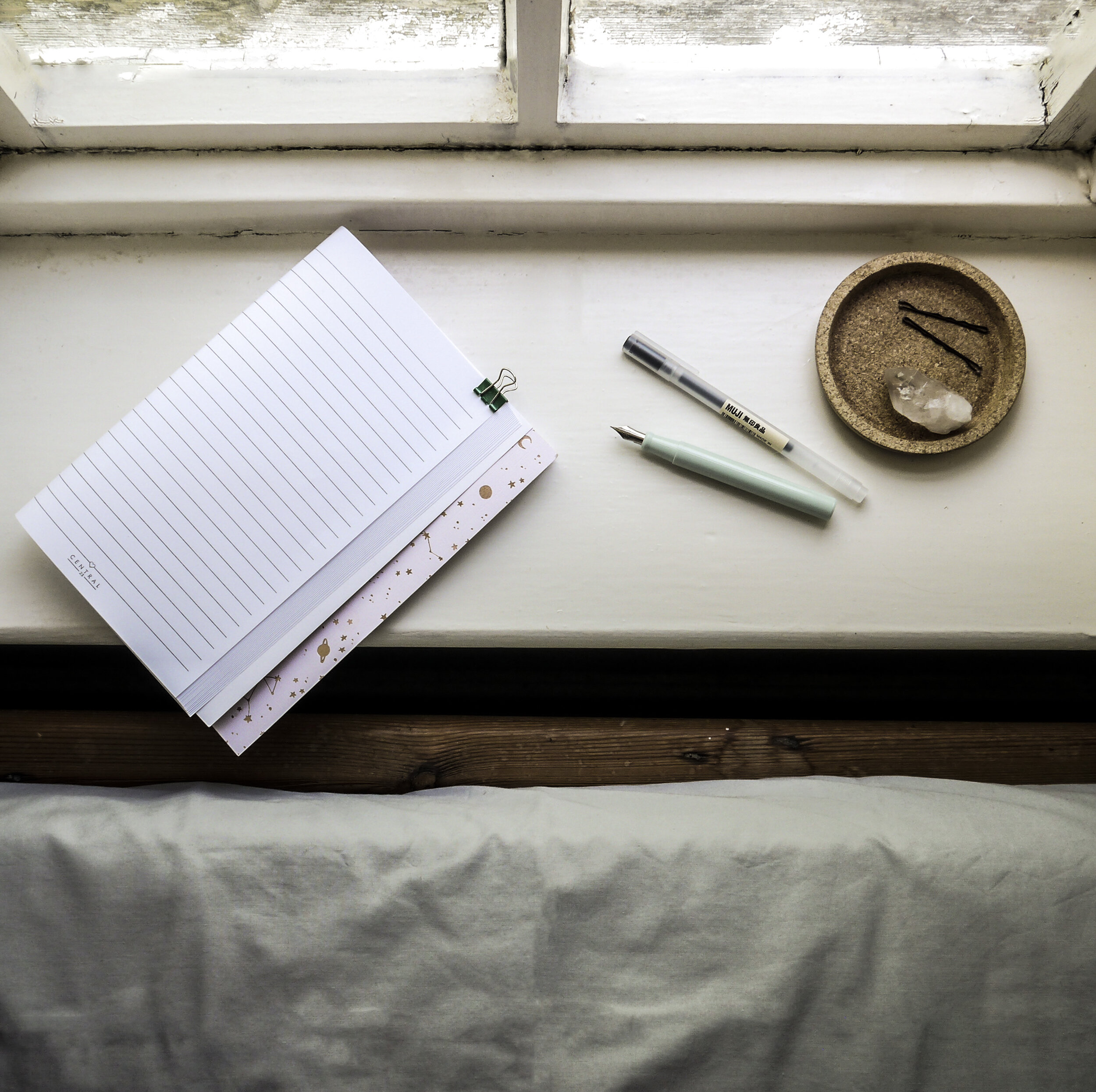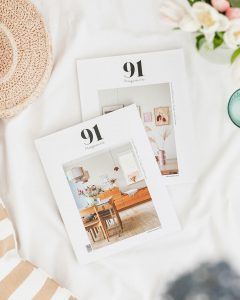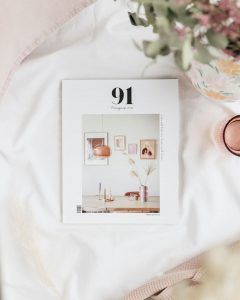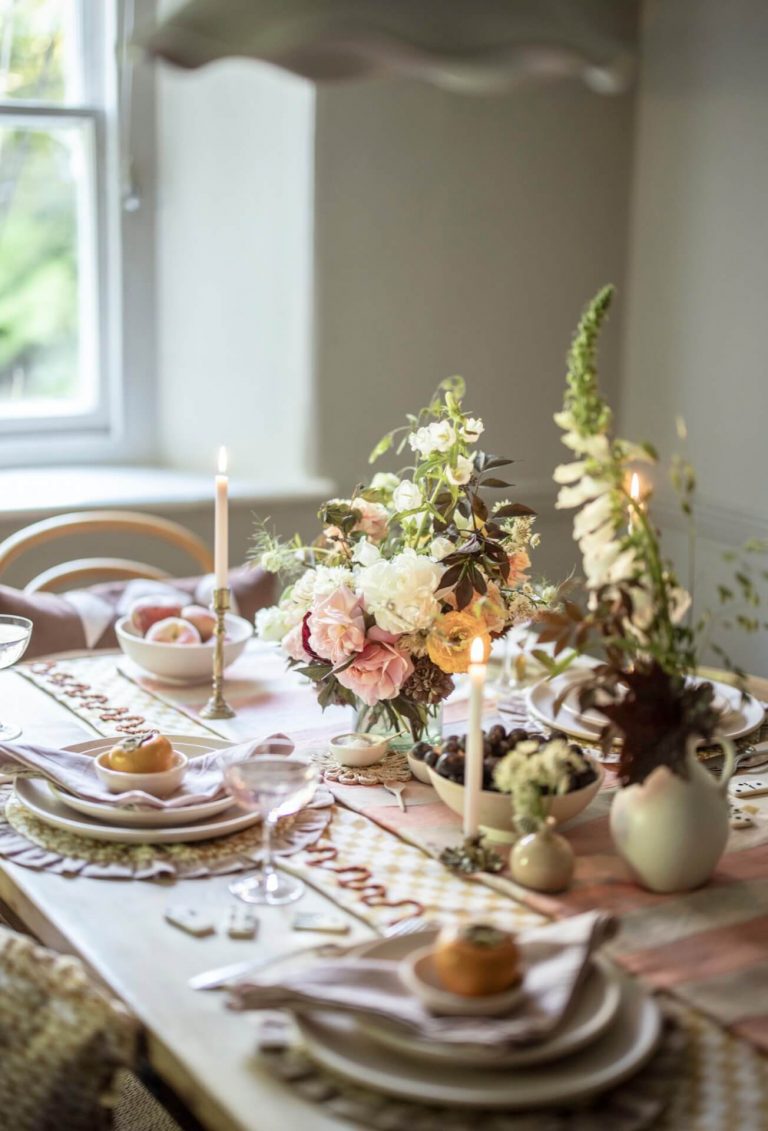Whether you write your own blog, are eager to pen your first novel, or dream of pitching article ideas to magazines, the first step is to make sure your writing is on point. It can be the difference between a good blog and a great blog and will most certainly affect whether your book or magazine submissions get considered.

When I first started out with writing fiction, I would write very sporadically, indulging in day-long writing sessions when inspiration struck; sessions that left me feeling drained and exhilarated in equal measure and invited progress that was slow and inconsistent. Enter: writing as a habit. I’ve always craved routine and structure, and it’s certainly something that a lot of writers tend to lean into as a more sustainable way of working – one that doesn’t drain the creative tank so thoroughly.
Making writing a daily habit has been a real turning point for me, and I know lots of writers find it helpful in building that commitment to their craft and in finding the motivation to show up to the page even when it feels difficult. In fact, it’s one of the reasons that challenges like National Novel Writing Month (or NaNoWriMo) can be so successful because, in order to ‘win’ the month, you have to be disciplined in forming that regular writing habit. It’s also one of the ways we can really begin to take ourselves seriously as writers, and in doing so, really allow our writing to flourish.
Whether your writing habit looks like quiet journaling, a weekly blog post, or an hour a day writing your novel, some of the benefits can be unexpected.

An obvious benefit of embracing a regular writing habit is how it improves your writing. Becoming consistent with those writing sessions really is the best way to develop your skill and confidence with words. Writing as a skill has one of the most amazing learning curves; I truly feel I get a little bit better every time I sit down to write. As your writing improves you’ll find it opens up some surprising opportunities along the way, too. Maybe you’ve never considered that you could write editorially and see your words published? Perhaps you’ll be encouraged to experiment with new directions or applications for your writing?
Think of what you could do with a growing confidence in your written communication. What could it mean for the copy on your website or even just important emails? It might even help you take that leap when it comes to making a proposal or contributing to a big project and it can also be invaluable in lending your voice and opinions with greater clarity and articulation.
Forming a habit out of writing regularly can be an interesting activity when it comes to self-care. Being absorbed absolutely in a task is something which encourages mindfulness and aids in relieving stress. Journaling, in particular, is the type of writing most commonly associated with this, but I’ve been using fiction writing as self-care for years. Think of it as a more active form of reading, not only are you escaping the world around you for a moment, you’re also crafting that escape for yourself, and stretching your imagination at the same time.
Something else which often develops alongside a writing skill is your powers of observation. Writing makes you notice all the little things and you’ll soon find yourself pulling details from your everyday to make your writing more vivid and realistic. Similarly, in becoming a better writer it’s likely you’ll become a better, more critical reader. It’s like going backstage at the theatre, you’re suddenly opening up all of these inside secrets and getting a closer look at the mechanics of writing stories and putting thoughts across in writing.
For me though, the most rewarding part of committing to a regular writing habit has to be that feeling of accomplishment and achievement. There’s nothing better than the sense of purpose that forms when you’re intentionally growing and shaping a longer piece of writing.

Make writing a habit with my simple tips for getting started on a piece of writing:
· Get all your thoughts and ideas down first – the messier the better. You’ll find it so much easier to focus and pull coherent sentences out if your mind is free from all those busy, distracting ideas. Do it by hand on a big sheet of paper or a double spread of your notebook, or open up a fresh document on the computer.
· Make a plan. I always make a quick plan, no matter how short the piece of writing. Bullet point out some structure for your work using the ideas that came out above and shuffle the order around until it starts to flow and make sense. For a larger project like a novel or complex article, you might even want to use index cards to split your ideas and give yourself something tangible to organise.
· Know your audience. Once you figure out who you’re writing for and why, your natural writing voice can shift to accommodate this. You don’t want to sound like you’re trying to imitate another writer, but even simple things can help you tailor your writing to a specific reader. You might try using more informal language for a personal blog; you could experiment with structure to make an informational article more accessible for a beginner-level audience; or perhaps look up appropriate word counts to make sure the plot of your novel isn’t drifting too much for a teenage audience, for example.
· Shift that fear of the blank page by starting with draft 0.5 instead of draft 1. Try copying your plan directly into your first draft document and use it as a skeleton to write around rather than starting with nothing.
· Don’t worry about writing it in order. The beauty of typing rather than handwriting is that you can jump into a piece of writing at any point; you don’t have to start at the beginning. Writer’s block comes when you freeze up over getting the right words out in the right order. Introductions don’t have to be written first (in fact, I think they’re better left until last).
· Remember that you can’t fix a blank page. We very rarely only get one draft, but you have to make a start in order to have something to edit.
· Do it all again the next day.
Ultimately, the key is this: habits form through repetition. The more you write, the easier it becomes. In getting comfortable with the idea of writing regardless of your mood, you become less reliant on needing to feel inspired or ‘ready’, and more capable of making steady progress.
For more tips on developing your writing check out Rosie’s website where you will find free resources or you can order her new eBook, Deep Roots to help you on the road to writing your first book.











